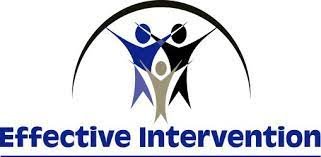Recent Findings
We aim to help improve children's lives through providing better health, numeracy and literacy, as a package of care. Many of our aid projects are designed as randomised controlled trials in order that we can confidently measure outcomes.
Randomised Control Trials
-
Our CHAMPION trial in rural Andhra Pradesh showed that a comprehensve package of community based health care, alongside access to improved clinical care for high risk mothers, was capable of reducing neonatal deaths by 25% over 2.5 years when compared to control villages who received standard of care.
-
Our STRIPES trial in rural Andhra Pradesh illusrated that a daily after school program, providing children with an extra two hours of numeracy and literacy training, was capable of improving children's test scores by 25 percentile when compared with controls who received standard of care.
-
Our EPICS trial in rural Guinea-Bissau failed to reduce child deaths through a package of measures that included community-based provision of first-line treatments for disease that cause child deaths, and regular mobile clinics. We concluded that, most likely, significant declines in child deaths required improved availability of second-line treatments including clinical and emergency services.
Based on these results, we renewed and expanded programs in Andhra Pradesh (the region is now called Telangana) for five years. Together with local partners, for the first time in India, we have applied regular TIMMS and PIRLS maths and reading tests, to see how far up the international ladder these children can climb during the intervention.
Surveys and Other Work
-
Our CREO survey measured literacy and numeracy outcomes of approximtely 10,000 children living in 200 villages in rural Guinea-Bissau. The survey revealed that, despite reasonably regular attendance at schools, as well as access to UN school lunch programmes, the children were learning very little. Only 27% of children aged 7-17 were able to add two single digits, and just 19% of these children could read a simple word. The dismal results from this survey motivated our decision to embark on the ROPE trial.
-
The Comprehensive Rural Health Project in Maharashsra State, India, founded in 1975 was one of the first attempts to sharply improve health outcomes in rural Indian villages through a focus on improving health knowledge and practices at the community level, alongside inexpensive clinical treatments. Despite its long history and fame, there was no rigorous analysis of the outcomes of this work. Effective Intervention, alongside our partners at the London School of Hygiene and Tropical Medicine, and with the assistance of CRHP's founder , the late Dr Raj Arole, developed novel techniques to rigorously measure outcomes of this historically important project.
